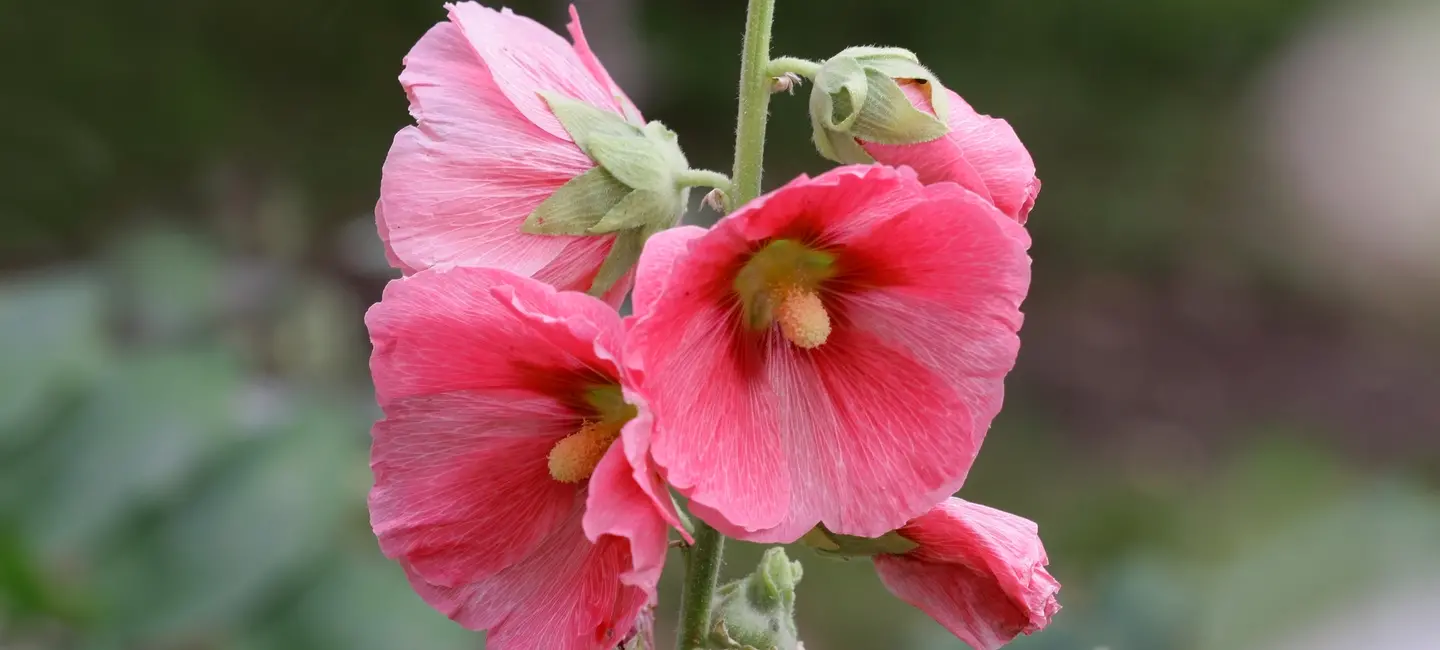
Hollyhock is a plant. The seed, root, stem, leaf, and flower are used as medicine.
Hollyhock is used for pain, stomach ulcers, wound healing, diabetes, and many other conditions, but there is no good scientific evidence to support these uses.
Is It Effective?
NatMed Pro rates effectiveness based on scientific evidence according to the following scale: Effective, Likely Effective, Possibly Effective, Possibly Ineffective, Likely Ineffective, Ineffective, and Insufficient Evidence to Rate.
- A mild form of gum disease (gingivitis).
- Bed sores (pressure ulcers).
- Bleeding in the stomach or intestines.
- Cancer.
- Diabetes.
- Eczema (atopic dermatitis).
- Foot sores in people with diabetes.
- High levels of cholesterol or other fats (lipids) in the blood (hyperlipidemia).
- Kidney stones.
- Leg sores caused by weak blood circulation (venous leg ulcer).
- Minor bleeding.
- Pain.
- Stomach ulcers.
- Swelling (inflammation) of the stomach (gastritis).
- Wound healing.
- Other conditions.
More evidence is needed to rate the effectiveness of hollyhock for these uses.
Is it Safe?
There isn't enough information to know how hollyhock might work.
When taken by mouth: There isn't enough reliable information to know if hollyhock is safe or what the side effects might be.
When applied to the skin: There isn't enough reliable information to know if hollyhock is safe or what the side effects might be.
Special Precautions & Warnings:
Pregnancy and breast-feeding: There isn't enough reliable information to know if hollyhock is safe to use when pregnant or breast-feeding. Stay on the safe side and avoid use.
Diabetes: Hollyhock might lower blood sugar levels in people with diabetes. Watch for signs of low blood sugar (hypoglycemia) and monitor your blood sugar carefully if you have diabetes and use hollyhock.
Surgery: Hollyhock might lower blood sugar and might interfere with blood sugar control during and after surgery. Stop taking hollyhock at least 2 weeks before a scheduled surgery.
Medications for diabetes (Antidiabetes drugs)
Interaction Rating=Moderate Be cautious with this combination.
Hollyhock might lower blood sugar levels. Diabetes medications are also used to lower blood sugar. Taking hollyhock along with diabetes medications might cause your blood sugar to go too low. Monitor your blood sugar closely. The dose of your diabetes medication might need to be changed.
Some medications used for diabetes include glimepiride (Amaryl), glyburide (DiaBeta, Glynase PresTab, Micronase), insulin, metformin (Glucophage), pioglitazone (Actos), rosiglitazone (Avandia), chlorpropamide (Diabinese), glipizide (Glucotrol), tolbutamide (Orinase), and others.
Herbs and supplements that might lower blood sugar: Hollyhock might lower blood sugar levels. Taking it along with other herbs and supplements that might lower blood sugar could lower blood sugar too much in some people. Some herbs and supplements that might lower blood sugar include alpha-lipoic acid, bitter melon, chromium, devil's claw, fenugreek, garlic, guar gum, horse chestnut, Panax ginseng, psyllium, Siberian ginseng, and others.
There are no known interactions with foods.
The appropriate dose of hollyhock depends on several factors such as the user's age, health, and several other conditions. At this time there is not enough scientific information to determine an appropriate range of doses for hollyhock. Keep in mind that natural products are not always necessarily safe and dosages can be important. Be sure to follow relevant directions on product labels and consult your pharmacist or physician or other healthcare professional before using.
Alcea rosea, Alcée Rose, Althaea ficifolia, Althaea rosea, Althea Rose, Common Hollyhock, Hollyhock Flower, Malva, Malva Flower, Malvae Arboreae Flos, Passerose, Rose Mallow, Rose de Mer, Rose Papale, Rose Trémière.
Information on this website is for informational use only and is not intended to replace professional medical advice, diagnosis, or treatment. While evidence-based, it is not guaranteed to be error-free and is not intended to meet any particular user’s needs or requirements or to cover all possible uses, safety concerns, interactions, outcomes, or adverse effects. Always check with your doctor or other medical professional before making healthcare decisions (including taking any medication) and do not delay or disregard seeking medical advice or treatment based on any information displayed on this website.
© TRC Healthcare 2024. All rights reserved. Use and/or distribution is permitted only pursuant to a valid license or other permission from TRC Healthcare.
